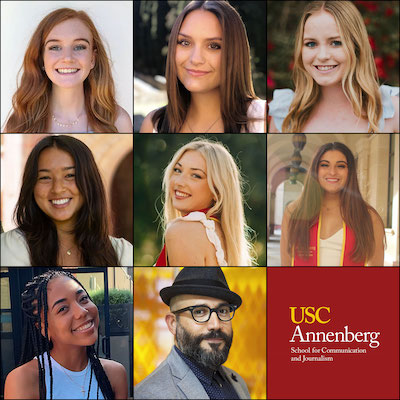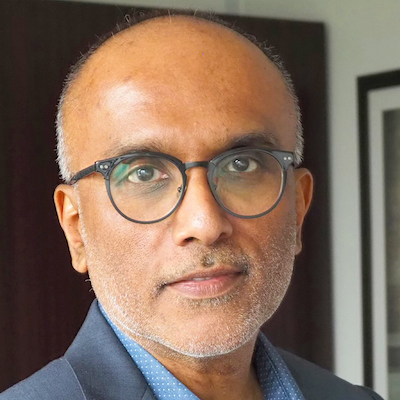Government subsidies to save local news
Local newspapers, one of America’s distinctive strengths, are enduring an existential crisis. When locally focused and equipped with the resources to thrive, the civic benefits of local news are substantial: less polarization, better accountability and competition, better bond ratings and less corporate crime, among many others. Investigative journalism is one of the most cost-efficient investments out there. When local news disappears or is hollowed out, communities suffer the consequences.
Local news also needs a little help from the government to be successful and affordable. In other words: It needs to be subsidized. The world does this with fossil fuels: Nearly 7 percent of global gross domestic product was spent on fossil fuel subsidies in 2020. Got milk? If you do, it’s because 73 percent of U.S. dairy farmers’ market returns were provided by federal subsidies, according to 2015 data.
The idea of government subsidies for news might seem in conflict with the American ideal of press independence, however. If the reality today is that local news is in danger of failing in the marketplace, should the government step in and help? Or does freedom of the press mean freedom from government assistance?
The answer from our history is clear: The government has always subsidized local news. Most American media is not supported by direct government funds — NPR and PBS excluded, though they only receive $1.35 per capita — but private media still benefit from special treatment by the government. In the words of the late political communication scholar Timothy Cook, “At any stage in American history, the production of news was centrally aided and abetted by political and governmental policies and practices.”
Politicians and government agencies regularly grant the media tax breaks and exempt them from some categories of labor laws and interstate commerce restrictions. From the creation of the Capitol Press Gallery in 1879, when Congress allowed journalists space in the capitol and the ability to elect their own officers, to the rapid growth in the 20th century of communications offices that subsidize information-gathering for journalists, government has always lent a hand when local news needed it.
Those subsidies need to be updated as technology and media economics change. Among the many issues facing the industry today, local newspapers’ lifeblood of advertising revenue is being undercut by the economics of the internet. As ad sales shifted online, 60 percent of all digital ad revenue now goes to two companies: Google and Facebook. (Fine, Meta.)
Should the government carve out exceptions to existing laws, as does the bipartisan Journalism Competition and Preservation Act (JCPA), to address this new problem? The bill exempts local news organizations from some antitrust laws and enables them to collectively bargain with the tech companies and win back some of that advertising money. It is exactly the kind of legal subsidy that the government has historically provided.
Subsidies can distort perceptions of an industry and the product, and that is already true of local news: 71 percent of Americans think their local news media is doing well financially (It isn’t). But the alternative, direct financial support to the industry, might be received differently: Polls show that 66 percent of people are against federal funding of local news, and Americans are divided on whether it should be allowed to fail. It may be helpful to keep local news subsidies as one of many “submerged” government policies that people benefit from without realizing it, if those policies can be big and bold enough to meet the moment.
I predict that the government will step up and deliver subsidies to local news, as it always has. Without subsidies, and if the industry continues its slide into failure, we will stumble into a more expensive, divided, corrupt, and destructive future.
Joshua P. Darr is an assistant professor of political communication at Louisiana State University.

Local newspapers, one of America’s distinctive strengths, are enduring an existential crisis. When locally focused and equipped with the resources to thrive, the civic benefits of local news are substantial: less polarization, better accountability and competition, better bond ratings and less corporate crime, among many others. Investigative journalism is one of the most cost-efficient investments out there. When local news disappears or is hollowed out, communities suffer the consequences.
Local news also needs a little help from the government to be successful and affordable. In other words: It needs to be subsidized. The world does this with fossil fuels: Nearly 7 percent of global gross domestic product was spent on fossil fuel subsidies in 2020. Got milk? If you do, it’s because 73 percent of U.S. dairy farmers’ market returns were provided by federal subsidies, according to 2015 data.
The idea of government subsidies for news might seem in conflict with the American ideal of press independence, however. If the reality today is that local news is in danger of failing in the marketplace, should the government step in and help? Or does freedom of the press mean freedom from government assistance?
The answer from our history is clear: The government has always subsidized local news. Most American media is not supported by direct government funds — NPR and PBS excluded, though they only receive $1.35 per capita — but private media still benefit from special treatment by the government. In the words of the late political communication scholar Timothy Cook, “At any stage in American history, the production of news was centrally aided and abetted by political and governmental policies and practices.”
Politicians and government agencies regularly grant the media tax breaks and exempt them from some categories of labor laws and interstate commerce restrictions. From the creation of the Capitol Press Gallery in 1879, when Congress allowed journalists space in the capitol and the ability to elect their own officers, to the rapid growth in the 20th century of communications offices that subsidize information-gathering for journalists, government has always lent a hand when local news needed it.
Those subsidies need to be updated as technology and media economics change. Among the many issues facing the industry today, local newspapers’ lifeblood of advertising revenue is being undercut by the economics of the internet. As ad sales shifted online, 60 percent of all digital ad revenue now goes to two companies: Google and Facebook. (Fine, Meta.)
Should the government carve out exceptions to existing laws, as does the bipartisan Journalism Competition and Preservation Act (JCPA), to address this new problem? The bill exempts local news organizations from some antitrust laws and enables them to collectively bargain with the tech companies and win back some of that advertising money. It is exactly the kind of legal subsidy that the government has historically provided.
Subsidies can distort perceptions of an industry and the product, and that is already true of local news: 71 percent of Americans think their local news media is doing well financially (It isn’t). But the alternative, direct financial support to the industry, might be received differently: Polls show that 66 percent of people are against federal funding of local news, and Americans are divided on whether it should be allowed to fail. It may be helpful to keep local news subsidies as one of many “submerged” government policies that people benefit from without realizing it, if those policies can be big and bold enough to meet the moment.
I predict that the government will step up and deliver subsidies to local news, as it always has. Without subsidies, and if the industry continues its slide into failure, we will stumble into a more expensive, divided, corrupt, and destructive future.
Joshua P. Darr is an assistant professor of political communication at Louisiana State University.
Laxmi Parthasarathy

Cristina Tardáguila

Matt Karolian

Candace Amos

Catalina Albeanu

Paul Cheung

Whitney Phillips

Christina Shih

Alice Antheaume

Jesse Holcomb

Richard Tofel

Robert Hernandez

Sarah Stonbely

Andrew Freedman

Gabe Schneider

Gordon Crovitz

Larry Ryckman

Doris Truong

James Salanga

Kerri Hoffman

Julia Munslow

Chicas Poderosas

Sam Guzik

John Davidow

Errin Haines

Mike Rispoli

Tom Trewinnard

Jennifer Coogan

Daniel Eilemberg

Jonas Kaiser

Rachel Glickhouse

David Cohn

Simon Galperin

Amara Aguilar

Melody Kramer

Parker Molloy

Kristen Jeffers

Raney Aronson-Rath

Kristen Muller

A.J. Bauer

Shalabh Upadhyay

Kendra Pierre-Louis

Joy Mayer

Joe Amditis

Jessica Clark

Ståle Grut

Sarah Marshall

Nik Usher

Tamar Charney

James Green

Millie Tran

Julia Angwin

j. Siguru Wahutu

Cherian George

Juleyka Lantigua

Kathleen Searles Rebekah Trumble

Joni Deutsch

Stephen Fowler

Moreno Cruz Osório

Francesco Zaffarano

Anthony Nadler

Victor Pickard

Anita Varma

Megan McCarthy

Stefanie Murray

Mandy Jenkins

Natalia Viana

Joanne McNeil

AX Mina

Christoph Mergerson

Shannon McGregor Carolyn Schmitt

Gonzalo del Peon

Tony Baranowski

Jennifer Brandel

Chase Davis

Simon Allison

Matt DeRienzo

Joshua P. Darr

Wilson Liévano

Amy Schmitz Weiss

Mario García

Jody Brannon

Rasmus Kleis Nielsen

Don Day

Eric Nuzum

Jim Friedlich

Meena Thiruvengadam

Izabella Kaminska

Burt Herman

Jesenia De Moya Correa

Ariel Zirulnick

Cindy Royal

Brian Moritz

Anika Anand

David Skok

Zizi Papacharissi

Matthew Pressman

Mary Walter-Brown

Michael W. Wagner

S. Mitra Kalita
